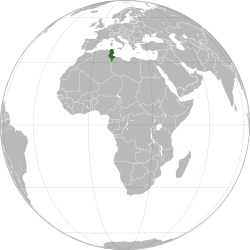Tunisia: Draft Constitution Marred By Setbacks
By Magharebia
By Monia Ghanmi
While Tunisia is in the midst of drafting a new constitution, many legal experts are concerned that the process is not on the right track.
The Association of Constitutional Law and the International Institute for Democracy on Wednesday (August 22nd) held a round-table seminar in Tunis, intended to serve as a preliminary reading of the general principles of the anticipated constitution.
“If this draft is not amended in the plenary sessions of the Constituent Assembly, the new constitution would assassinate freedoms in Tunisia and threaten the freedoms gained with the revolution,” said Tunisian lawyer and former Dean of the Faculty of Law and Political Science Iyadh Ben Achour.

He considered the new draft constitution to be inconsistent with the demands of the revolution for a civilian state. For example, Ben Achour claimed that repeated expressions of religiosity and holy sites in Article 1 of Chapter IV pave the way for the establishment of dictatorship through a religious state.
This Article indicates, “The state is the sponsor of religion, ensuring the freedom of belief and religious practices, and the protector of holy sites, ensuring the neutrality of houses of worship from partisan propaganda.”
There is confusion between general provisions and freedoms in the draft constitution, he pointed out. Some articles inserted under general provisions could have been incorporated under freedoms. According to the lawyer, this represents a systematic error that must be overcome.
Ben Achour elaborated that the method envisaged by the committees in writing some of the articles is not a legal one and does not solidify rights in a practical way but opens doors for dangerous anti-freedom interpretations.
He attributed these gaps to the lack of legal experience and constitutional knowledge of the members of the Constituent Assembly.
In this context, Ben Achour stressed the importance of precision in the choice of words.
The Constituent Assembly proposed three weeks ago an initial project of the constitution draft though the committees had not resolved debate on a number of contentious issues, particularly concerning the nature of the political system and the general principles of freedom.
For his part, member of the International Academy of Constitutional Law Ghazi Ghrairi criticised the preamble of the draft constitution, considering it long and stuffed with numerous vague concepts. He urged the members of the Constituent Assembly to formulate a constitution better than the one from 1959 and to ensure that human rights are clearly spelled out.
Regarding freedom of belief, international law expert Slim Loghmani called for prioritising international treaties over the new constitution. He called for adopting Article 18 of the International Covenant on Civil and Political Rights, which was ratified by Tunisia and protects freedoms.
Loghmani commented that Article 1 of the draft constitution was vague with regard to religion and the state. It would, according to him, close doors to all attempts to establish secularism.
The Article reads, “Tunisia is a free, independent and sovereign state. Its religion is Islam, its language is Arabic and its type of government is republic.”
Professor of constitutional law Salwa Hamrouni opposed the chapter specifying the religion of the president as well as the one about excluding holders of a second nationality from running for the presidency.
“The candidate for the Presidency of the Republic must be a voter, of exclusively Tunisian nationality, Muslim, born to a Tunisian father and mother, and be at least 40 years of age,” according to Article 46 of the draft law.
The requirement is incompatible with the principle of non-discrimination advocated by the constitution, Hamrouni argued.
